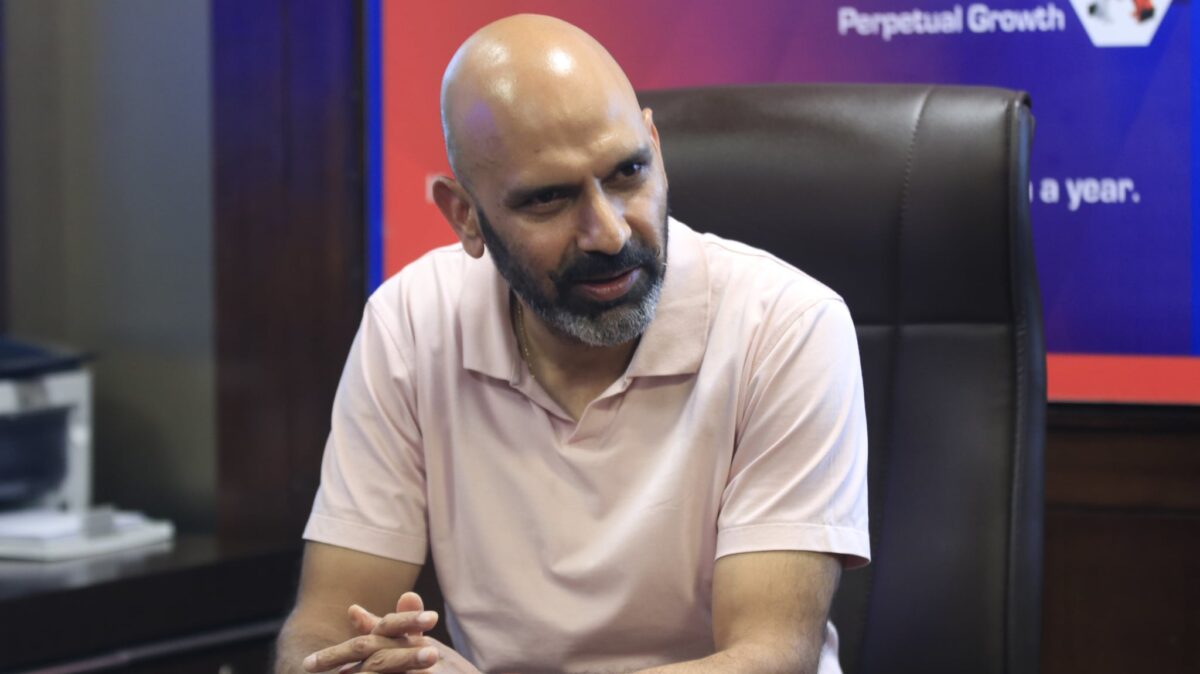Insurance Should Be Viewed as Risk Protection, Savings, and Investment: CEO Pravin Raman Parajuli

Kathmandu – Pravin Raman Parajuli, the Chief Executive Officer of Nepal Life Insurance and Vice President of the Life Insurance Association of Nepal (JEBISAN), has emphasized the need for customer-focused insurance policies, improved access for low-income groups, and consistent government support to strengthen Nepal’s insurance sector.
Appointed CEO of Nepal Life on 4th Shrawan 2079, Parajuli now heads the largest life insurer in the country, overseeing a vast network of branches, sub-branches, and over 100,000 agents nationwide.
In an exclusive interview, Parajuli shared his insights on the current state of the life insurance industry, challenges it faces, and the road ahead.
How is Nepal’s life insurance sector progressing?
Pravin Raman Parajuli: There’s been notable growth. As of Jestha month, we’ve recorded a 31% increase in the first insurance premium. People are now leaning toward insurance for risk protection and savings, especially as interest rates on bank deposits decline. This shift is driving growth.
What are the main challenges facing the sector?
Pravin Raman Parajuli: We face policy, legal, and technical challenges. However, most policy issues are sector-wide, not limited to individual companies. Stakeholders—like associations and agents must work together to resolve them. Right now, the key issue is technical, especially concerning reinsurance responsibilities. There’s a lack of clarity about how much risk should be retained locally and how much should be transferred abroad.
Are there legal obstacles in the industry?
Pravin Raman Parajuli: Not significantly. Legal matters are typically resolved through collective discussions among stakeholders. The technical side, particularly reinsurance, is where complications remain.
Is access to insurance for low-income groups sufficient?
Pravin Raman Parajuli: We are selling microinsurance, often via microfinance institutions, to help vulnerable families manage future risks. But it’s not enough. Core life insurance penetration is just around 18%. Term insurance should be promoted for low-income individuals, while products with both savings and protection features are better for those with higher incomes.
Has the entry of microinsurance companies affected life insurers?
Pravin Raman Parajuli: Not much. Although some business overlap exists, our target audiences differ. Both sectors aim to protect lives. Their presence brings healthy competition and encourages us to serve better.

What is being done to make insurance easier for customers to understand?
Pravin Raman Parajuli: Insurance is complex. Both agents and customers need to understand the products. That’s why we advocate for simpler financial products that reduce confusion and avoid mis-selling. New policies should be introduced based on real market needs, not copied for the sake of competition.
Why are policy surrenders increasing, and how can they be reduced?
Pravin Raman Parajuli: The country’s economic challenges directly affect people’s ability to pay premiums. As income drops, surrender rates rise. Companies should offer flexibility—like late-fee waivers—to help policyholders continue. At Nepal Life, these initiatives have reduced our surrender rate despite the broader economic pressure.
There are complaints that insurance policies are often copy-pasted. How should this be addressed?
Pravin Raman Parajuli: Each company should understand its customers’ needs and design products accordingly. A new policy must serve its target group; otherwise, it’s meaningless. While duplication can happen in a competitive market, innovation and customization are what truly add value.
How is the large volume of insurance deposits being managed?
Pravin Raman Parajuli: Investment must prioritize stability and long-term returns. With around seven trillion rupees in insurance funds, we must ensure sound financial management. Before investing, one should assess a company’s financial health, returns, and long-term strategies.
How do fluctuations in bank interest rates impact insurance companies?
Pravin Raman Parajuli: Since about 95% of our investments are with banks and financial institutions, changes in interest rates directly affect us. These funds belong to the people, so such changes ultimately affect policyholders as well.
AGMs are often delayed in insurance companies. Has this been addressed?
Pravin Raman Parajuli: Yes. The Insurance Authority is now processing actuarial valuations and financial reports in a timely manner, enabling us to hold annual general meetings on schedule. This has been a positive change.

How is Nepal Life improving agent capacity?
Pravin Raman Parajuli: We conduct orientation and refresher trainings and recognize high achievers. To make learning accessible, we’ve created an online platform with training materials. This benefit both existing agents and those who want to join the industry.
Are insurance companies lagging behind banks in technology?
Pravin Raman Parajuli: We’ve made substantial progress. Policy renewals, claim tracking, and payments are digital. Customers receive SMS updates, and claim settlements are deposited directly into bank accounts. Though some processes still require physical presence, like verifying the deceased claimant, even that is being digitized.
What should the government and the Insurance Authority do to expand access?
Pravin Raman Parajuli: The government should take policy-level decisions—like revising tax brackets or making certain insurances mandatory—to promote coverage. The Insurance Authority has supported us in many ways. With favorable policy direction, we are ready to reach even the remotest villages.
Has the government overlooked the insurance sector?
Pravin Raman Parajuli: Sometimes, yes. For instance, this year’s budget didn’t give insurance proper attention. While we’ve been included in the past, consistent prioritization is lacking. The government should maintain focus on the insurance sector, as it plays a vital role in economic security.
Finally, what message would you like to share with the public?
Pravin Raman Parajuli: Insurance isn’t just about saving—it’s a powerful tool for risk protection and securing the future. Everyone should have insurance suited to their capacity. It’s not a luxury; it’s a necessity. Thank You.
